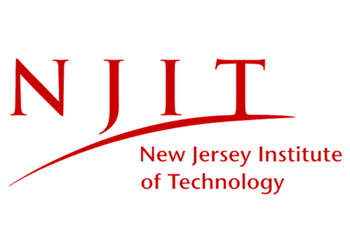Simple, Fast and Accurate Standalone Point-of-Care (POC) Micro Biochip for Disease Detection, Monitoring and Diagnosis

This project proposes to develop an innovative standalone point-of-care (POC) Micro Biochip to detect multiple biomarkers for screening, monitoring and diagnosing the complex diseases with a finger prick of blood sample only.
Developing an Intelligent Multi-Modal, IoT-enabled, AI-integrated, Sensor Fusion-based Wearable Device for Improving Human-Robot Interaction

Advancements in human-machine interaction (HMI) demands intuitive, real-time control mechanisms that seamlessly integrate with natural human movement. This project presents a wearable multi-modal device designed to capture precise hand gestures for machine and/or robotic control based on the fusion of surface electromyography (EMG) and inertial measurement unit (IMU) sensors. The system features a custom-designed PCB […]
Nalam Therapeutics; Developing a Proprietary Antibody Nanogel Conjugate (ANC) Platform for the Treatment of Cancer

Nalam Therapeutics is developing a platform for universal inclusion of chemotherapeutic drugs in ADC-like formats, overcoming current limitations of drug-to-antibody ratios and linker restrictions. The platform aims to disruptively impact the $9.7B ADC market. Nalam’s goal is to enhance the safety and efficacy profiles of these drugs, improving patient outcomes.
Tova Earth; Creating a Global Water Sustainability Tool using Deep Learning Applied to Existing Geophysical Data

Tova Earth is a biotech climate-tech start-up using Deep Learning to create scalable software for improving water sustainability and security. Tova Earth has identified groundwater depletion and water scarcity as key concerns for industries like beverage, computing, and finance. Their NSF ART project aims to develop a groundwater risk estimation tool and validate it with […]
HasenTech; Developing a Safe Therapeutic to Dampen Pathological Inflammation in Graft Versus Host Disease

HasenTech Inc. is an early-stage biotech start-up developing a novel anti-inflammatory exopolysaccharide (EPS) from Bacillus subtilis to treat inflammatory diseases, with an initial focus on graft versus host disease (GvHD). HasenTech is collaborating with clinical expert and regulatory consultants to design first-in-human (FIH) trials. Specific objectives of the NSF ART project include developing an activity […]
nFast-A nanotechnology approach to developing highly soluble API

A major challenge facing the pharmaceutical industry and drug development today is that a large number (40 to 70%) of active pharmaceutical ingredients (API) have low water solubility which lead to poor bioavailability and often therapeutic failure. These hydrophobic molecules fall under the category of Biopharmaceutics Classification System (or BCS) class II and IV drugs. […]
Real-time Operational Resilience Assessment Platform for Electricity Infrastructure

The growing frequency of natural disasters (an 80% increase over the past 20 years) and aging power grid infrastructure (with over 70% being more than 25 years old) highlight the urgent need for improved resilience.
Sequestering CO2 and producing low-carbon concrete using a biomolecule regulated pre-carbonation method
This project aims to develop a novel manufacturing method for concrete that not only enhances its performance but also significantly increases CO storage capacity. This is achieved through a biomolecule-regulated carbonation process, in which CO is injected into the cement slurry before it is mixed with other concrete ingredients. The presence of biomolecules regulates the […]
Micrometeorological Modeling

Extreme heat stresses humans, infrastructure, and ecosystems. Municipal and community actors working to mitigate the impacts of extreme heat require hyper-local information to help stakeholders make decisions about which solutions work best and what benefit they can expect for the populations they serve. This Seed Translational Research Project (STRP) is developing hyper-local simulations of micrometeorology […]
Translation of Geoscience Technology to Empower Communities: Indigenous Geocoding in the Arctic

Geocoding is a basic spatial referencing process that is extensively used to connect scientific data to a specific location on Earth. Currently there is a gap in knowledge about using culturally responsive geocoding practices that align with the Indigenous Data Governance framework when working with Indigenous digital heritage data. This mixed methods project closes this […]
